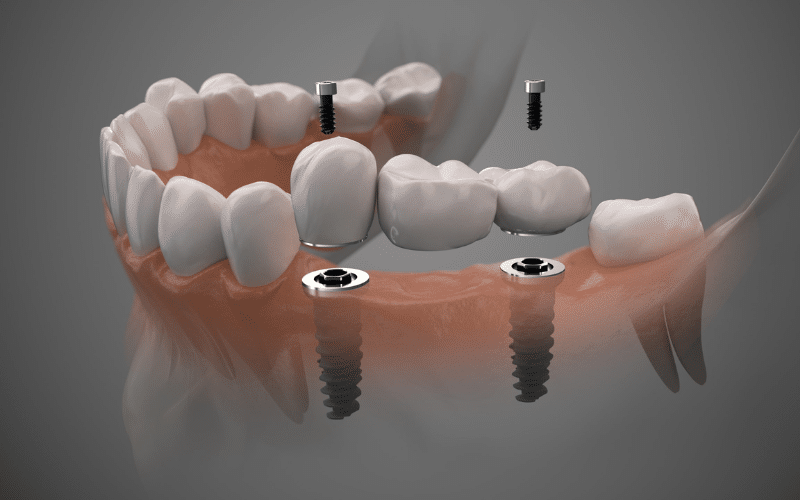How Do Dental Veneers Work?
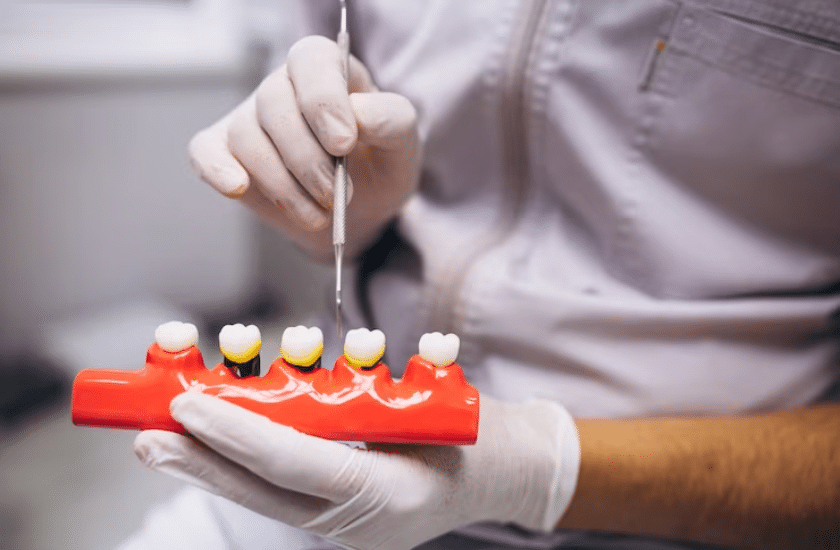
Get ready to flash your pearly whites with confidence! Dental veneers might be the perfect solution if you’re looking for a way to transform your smile. These thin shells of porcelain or composite resin can cover imperfections like chips, stains, and gaps in your teeth. But how do they work exactly? In this blog post, we’ll deeply dive into dental veneers and explore everything from the procedure to their durability and maintenance. So sit back, relax, and get ready to learn all about this popular cosmetic dentistry option.
What Are Dental Veneers?
- Dental veneers are ultra-thin porcelain shells bonded to the teeth’ front surfaces. They are used to improve the appearance of teeth that are stained, chipped, or otherwise damaged. Veneers can also be used to close small gaps between teeth.
- The procedure for getting veneers is fairly simple. First, your dentist will clean and prep your teeth by removing tartar or plaque. Next, they will take an impression of your teeth to create a custom set of veneers. Once the veneers are ready, your dentist will bond them to your natural teeth using a unique adhesive.
- Veneers are durable and long-lasting, but they are not indestructible. Avoid biting your nails or eating hard foods like candy corn, as this can damage the veneer. With proper care, your veneers can last for many years.
How Do Dental Veneers Work?
- Dental veneers are thin, porcelain shells bonded to your teeth’ front surface. They can improve your smile’s appearance by hiding imperfections like chips, cracks, stains, and gaps. Veneers are an excellent option for those who want to achieve a natural-looking smile without undergoing extensive dental work. The procedure is relatively simple and can be completed in just two visits to your dentist.
- During the first visit, your dentist will prepare your teeth for the veneers by removing a small amount of enamel from the front surfaces. This is necessary to create room for the thickness of the veneer. Once your teeth have been prepared, impressions will be taken and sent to a dental laboratory where your custom veneers will be made.
- Your dentist will bond the veneers to your teeth at your second appointment using a special dental adhesive. Once in place, the veneers will be checked for fit and then trimmed and polished to match the shape and colour of your natural teeth. With proper care, dental veneers can last for many years before they need to be replaced.
The Types Of Dental Veneers
- Porcelain veneers and composite veneers are the two main types of dental veneers. Porcelain veneers are made from a thin layer of custom-made porcelain to fit over your teeth. Composite veneers are made from a resin material that is also custom-made to fit over your teeth.
- Porcelain veneers are more durable than composite veneers and resist staining better. They also provide a more natural-looking result. However, they are also more expensive than composite veneers.
- Composite veneers are less expensive than porcelain veneers but don’t last as long. They are also not as resistant to staining and may not provide as natural-looking of a result.
How To Care For Your Dental Veneers
Dental veneers are a popular cosmetic dentistry treatment that can give you a beautiful, natural-looking smile. But how do you keep your new veneers looking their best? Here are some tips for caring for your dental veneers:
1. Brush and floss regularly. Like natural teeth, your veneers must be brushed and flossed twice daily to prevent plaque and tartar buildup. Be sure to use non-abrasive toothpaste to avoid scratching the surface of your veneers.
2. Avoid biting or chewing on complex objects. Your veneers are strong, but they’re not indestructible. Biting or chewing on complex objects like fingernails, ice, or hard candy can damage or break your veneers.
3. See your dentist regularly. Even though veneers are built to last, you must see your dentist every six months for a cleaning and checkup. This will help ensure that your veneers stay in good shape and that your mouth is healthy overall.
4. Don’t use at-home whitening products. If you want to whiten your teeth, ask your dentist about professional whitening treatments that are safe for use with veneers. At-home whitening products may contain harsh chemicals that can damage or discolour your veneers.
Dental veneers offer an effective solution to fix minor defects and restore the beauty of your smile. They are custom-made for each individual, making it possible to achieve natural-looking results with minimal discomfort. You can enjoy your new smile for years with proper care and a commitment to regular dental visits. If you’re curious about what dental veneers can do for you, we recommend speaking with an experienced dentist who can guide you through all your options and help you find the best treatment plan that meets your needs.
Recent Posts
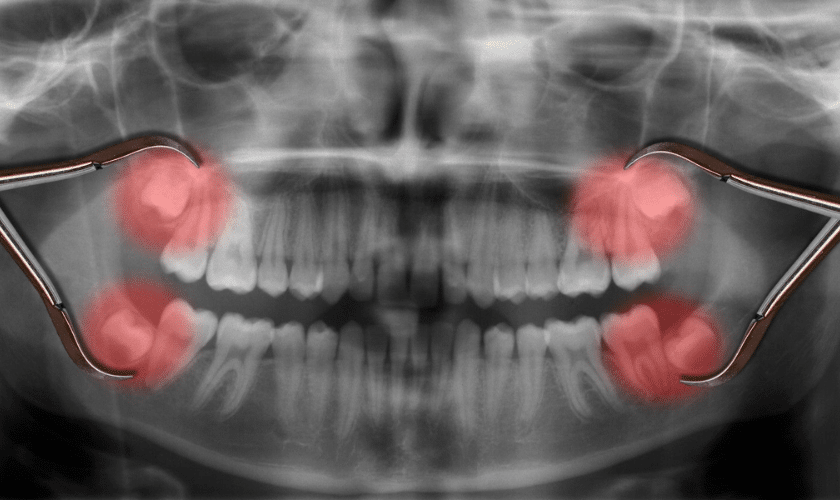
Is It Normal To Have Ear Pain After Wisdom Teeth Removal?

Why Does My Jaw Hurt Long After Tooth Extraction?
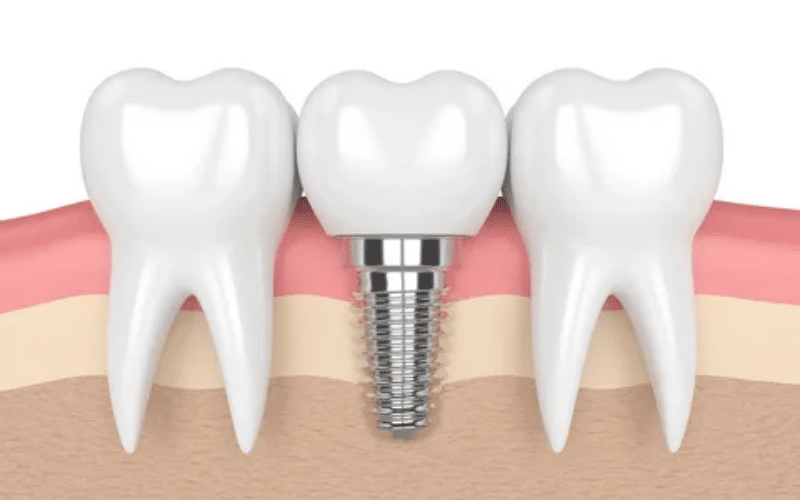
Dental Implants The Long-Term Solution To Missing Teeth And Their Benefits
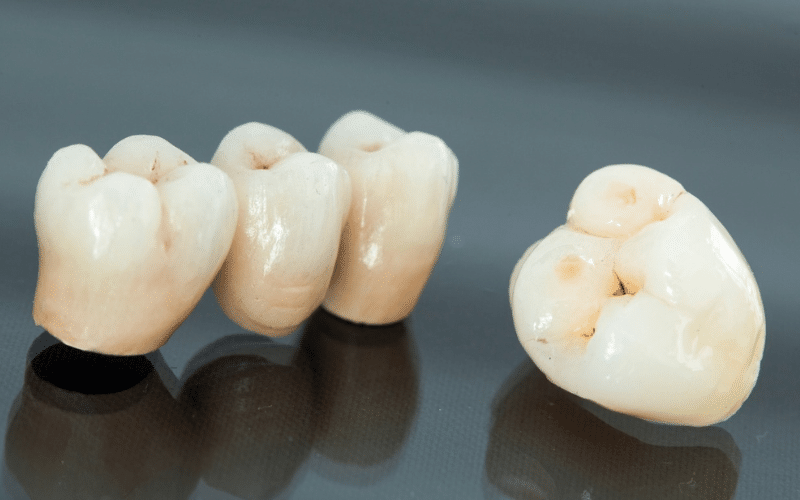
Your Dental Crown Broke Here Are 5 Steps To Take Immediately
